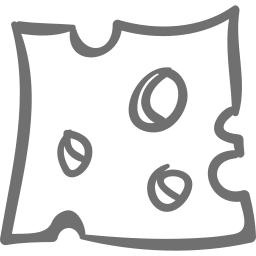Pregnancy is something extraordinary. It is important to have a well-balanced diet, but it could be challenging to be aware of all the dietary guidelines of safe and healthy pregnancy. Being pregnant requires paying attention to certain types of food. Is it safe to eat soft-paste cheese when you’re pregnant? It is difficult to find a complete list of food that you should avoid during pregnancy. This article will explain why you should avoid eating soft-paste cheese when you are pregnant, the problems that are associated with eating soft-paste cheese and what you need to do in case you already ate it.

Is it ok eat soft-paste cheese during pregnancy?
For cheese lovers, it is important to be aware of what types of cheese are not dangerous to eat during pregnancy. Is soft-paste cheese a part of that list? The answer is no, it isn’t safe to eat soft-paste cheese while you’re pregnant.
What are the problems that come from eating soft-paste cheese when you’re pregnant and what types of cheese are to prevent during pregnancy?
The problems of eating soft-paste cheese when you are pregnant
The two illnesses that can come from eating soft-paste cheese during pregnancy are toxoplasmosis and listeriosis.
Toxoplasmosis can come from eating unwashed vegetables or fruits, uncooked fish and uncooked meat. Contact with cat stool is another example.
Listeriosis is the main risk. This disease is linked to a bacterium (Listeria) that proliferates in uncooked cheese. Once ingested by the mother, it can contaminate the fetus and cause a serious infection that can result in premature birth. It is important to prevent eating soft-paste cheese during pregnancy.
If you want to find out more about listeriosis:
https://www.who.int/news-room/fact-sheets/detail/listeriosis
Cheeses that aren’t recommended during pregnancy
When you are pregnant, it is not recommended to eat soft-paste cheese..
Here is a short list of cheeses that are to avoid during pregnancy:
- Fresh cheeses
- Soft cheeses made from raw or non-pasteurized milk: such as Brie, Camembert, Emmental made from raw milk, …
- Soft cheeses with mould rinds: Chavignol, coulommiers, …
- Blue cheese: Auvergne blue, Gorgonzola, Roquefort, …
- Semi-hard cheeses made from raw or non-pasteurized milk
- Feta cheese
Food search engine during pregnancy
Is there a not dangerous way of eating soft-paste cheese during pregnancy?
Yes, there are safe ways of eating soft-paste cheese during pregnancy. It has to be cooked at very high temperatures, like raclette, and without the rind. Cheese fondue, for instance, isn’t cooked enough. If you’re unsure if whether or not the cheese is properly cooked, do not eat it- it will save you from worrying about it.
What if I’m pregnant and already ate soft-paste cheese?
If you cooked it at a high temperature, there’s nothing to worry about- the Listeria bacterium cannot withstand the heat.
If you ate it insufficiently cooked or not cooked at all, do not be alarmed. Our advice is for you to wait and see if you have any signs of illness like fever or headaches. If that happens within two months, you should certainly see a doctor and have a blood test done. In case you are diagnosed with listeria, you will be prescribed with antibiotics.
We remind you that the risk of contamination with Listeria is low and not all that common, so there is no need to be over-alarmed.
Conclusion
You should avoid eating soft-paste cheese when you are pregnant, in order to stay far from the problems that can come from that. Even though it isn’t advisable to eat soft-paste cheese during pregnancy, there are plenty of other things that are good for you and your baby.
